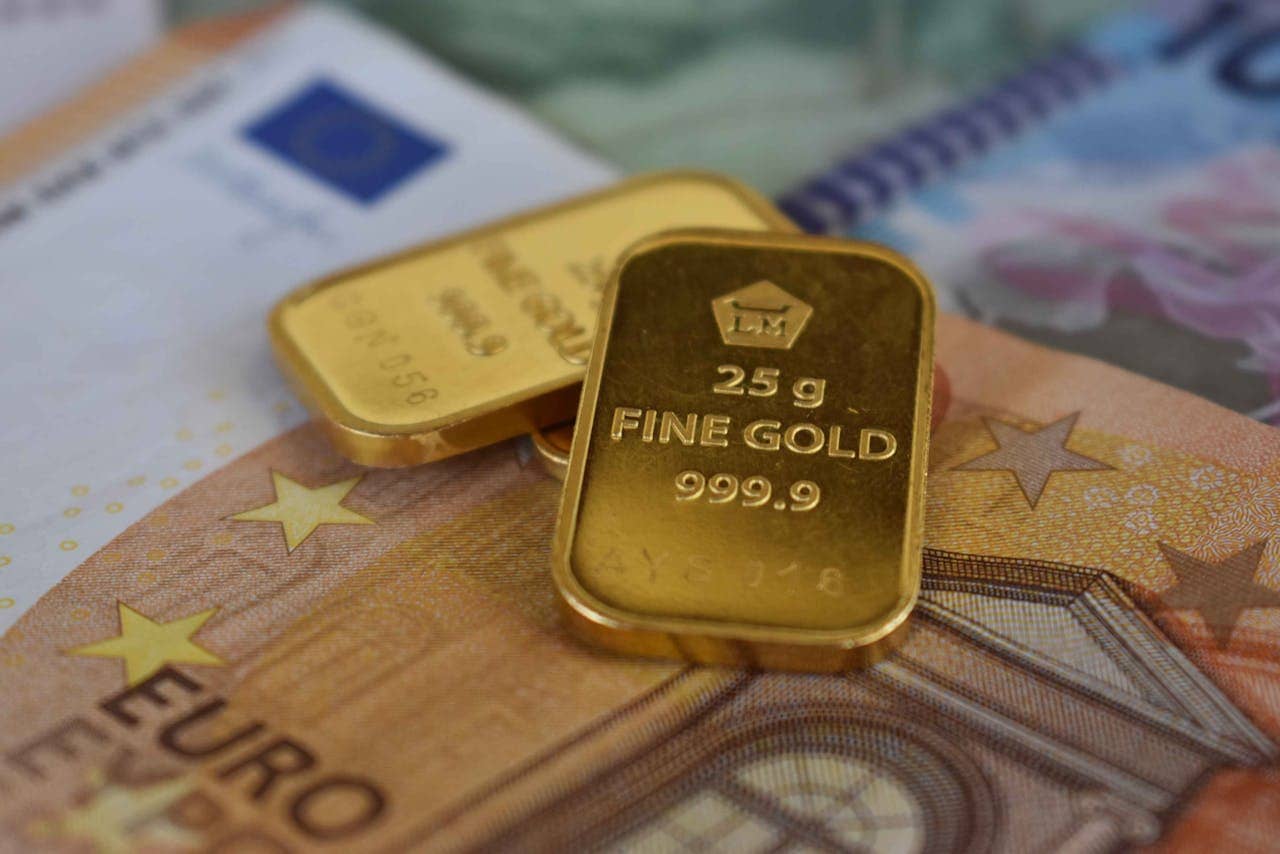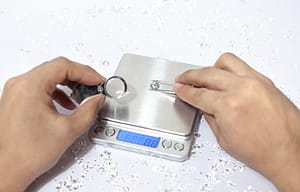Should You Use a Depository for Precious Metals?

Investing in precious metals has become an appealing choice for many seeking to diversify their portfolios and safeguard their wealth. Whether it’s gold, silver, platinum, or palladium, these tangible assets have stood the test of time as reliable stores of value. Money Metals is investment triggers a crucial question: How do you securely store your metals? Enter depositories—secure facilities designed specifically for holding precious metals. They offer peace of mind in a world filled with uncertainties. If you’re considering whether a depository is right for your valuable metal investments, it’s important to explore what they offer and the benefits they provide. Let’s dive into the essentials that can help you make an informed decision about securing your treasures.
Security Measures in Place
 When it comes to precious metals, security is paramount. Depositories implement a range of measures to ensure the safety of your assets. Most facilities feature advanced surveillance systems. 24/7 monitoring keeps an eye on every corner, ensuring any suspicious activity is addressed. Physical barriers are also crucial. Many depositories use reinforced vaults designed to withstand break-ins and natural disasters alike.
When it comes to precious metals, security is paramount. Depositories implement a range of measures to ensure the safety of your assets. Most facilities feature advanced surveillance systems. 24/7 monitoring keeps an eye on every corner, ensuring any suspicious activity is addressed. Physical barriers are also crucial. Many depositories use reinforced vaults designed to withstand break-ins and natural disasters alike.
Types of Precious Metals Accepted
When it comes to depositories, a range of precious metals can be stored. The most commonly accepted are gold and silver. These two have long been valued for their intrinsic worth and investment potential. Platinum and palladium also find their place in many storage facilities. Both metals serve various industrial applications, adding to their appeal as an investment choice. Some depositories may even accommodate rare coins or collectibles made from these precious materials. It opens up more avenues for collectors looking to secure valuable assets.
Costs and Fees Associated with Depositories
 When considering a depository for precious metals, it’s crucial to understand the costs involved. Fees can vary widely depending on the institution and services offered. Most depositories charge an annual storage fee, typically based on the value or weight of your metals. This fee ensures that your investment is securely housed and monitored. In addition to storage fees, some facilities may impose transaction fees when you buy or sell your metals.
When considering a depository for precious metals, it’s crucial to understand the costs involved. Fees can vary widely depending on the institution and services offered. Most depositories charge an annual storage fee, typically based on the value or weight of your metals. This fee ensures that your investment is securely housed and monitored. In addition to storage fees, some facilities may impose transaction fees when you buy or sell your metals.
These costs can add up, so it pays to read the fine print. Insurance is another aspect to consider. Many depositories include insurance in their overall pricing, but be sure about what coverage you receive. There could be withdrawal fees if you decide to take possession of your metals later. Understanding these various charges will help determine if using a depository aligns with your financial goals.
Conclusion
Determining whether a depository is the right choice for your precious metals involves weighing several factors. Your choice should align with your financial goals and comfort level regarding security. Take time to reflect on what matters most to you before making this important decision regarding the safekeeping of your valuable assets.…




 Understanding your audience is essential for creating content that resonates with them. Take the time to research and analyze who your readers are, their interests, preferences, and pain points. This valuable insight will guide you in tailoring your content to meet their needs effectively. Engage with your audience through comments, surveys, and social media interactions to better understand what they want from your blog.
Understanding your audience is essential for creating content that resonates with them. Take the time to research and analyze who your readers are, their interests, preferences, and pain points. This valuable insight will guide you in tailoring your content to meet their needs effectively. Engage with your audience through comments, surveys, and social media interactions to better understand what they want from your blog. When crafting engaging content for your blog, using amazing visuals can elevate the reader’s experience. Images, infographics, videos, and other visual elements can captivate your audience and convey information more compellingly. Visuals break up text-heavy content and help engage readers who may be more visually oriented. A well-chosen image or graphic can instantly grab attention and entice visitors to stay on your page longer.
When crafting engaging content for your blog, using amazing visuals can elevate the reader’s experience. Images, infographics, videos, and other visual elements can captivate your audience and convey information more compellingly. Visuals break up text-heavy content and help engage readers who may be more visually oriented. A well-chosen image or graphic can instantly grab attention and entice visitors to stay on your page longer.



 Brose’s electric drive systems play a pivotal role in the electric vehicle revolution by offering lightweight, efficient, and high-performance solutions. Their electric motors are designed for optimal power distribution, resulting in improved energy efficiency and reduced energy consumption. Brose employs advanced materials and production techniques to create compact and lightweight motor designs.
Brose’s electric drive systems play a pivotal role in the electric vehicle revolution by offering lightweight, efficient, and high-performance solutions. Their electric motors are designed for optimal power distribution, resulting in improved energy efficiency and reduced energy consumption. Brose employs advanced materials and production techniques to create compact and lightweight motor designs. Brose’s expertise extends beyond propulsion systems to include advanced interior components designed to enhance the comfort and user experience of electric vehicle occupants. Their innovative seat systems, for example, offer heightened ergonomics, customizable features, and integrated heating and cooling functionalities.
Brose’s expertise extends beyond propulsion systems to include advanced interior components designed to enhance the comfort and user experience of electric vehicle occupants. Their innovative seat systems, for example, offer heightened ergonomics, customizable features, and integrated heating and cooling functionalities.








 Spring-powered airsoft guns, also known as springers, are the most basic and straightforward type of airsoft gun. They rely on mechanical energy stored in the spring to propel the BBs. These guns are often affordable and popular among beginners due to their simplicity. To cock a spring-powered gun, you manually pull back the slide or bolt, compressing the internal spring. When you release it, the spring rapidly expands, pushing air through the barrel and propelling the BB forward with decent accuracy. The best thing about them is they don’t require any external power sources like batteries or gas canisters.
Spring-powered airsoft guns, also known as springers, are the most basic and straightforward type of airsoft gun. They rely on mechanical energy stored in the spring to propel the BBs. These guns are often affordable and popular among beginners due to their simplicity. To cock a spring-powered gun, you manually pull back the slide or bolt, compressing the internal spring. When you release it, the spring rapidly expands, pushing air through the barrel and propelling the BB forward with decent accuracy. The best thing about them is they don’t require any external power sources like batteries or gas canisters.

 The beauty of online financial advice is its accessibility. Regardless of location or time zone, you can tap into a wealth of financial wisdom. Whether sitting on your couch in your pajamas or traveling the world, you can access financial resources and expert advice whenever and wherever you please. This accessibility breaks down barriers and ensures that financial guidance is available to all, regardless of geographical limitations.
The beauty of online financial advice is its accessibility. Regardless of location or time zone, you can tap into a wealth of financial wisdom. Whether sitting on your couch in your pajamas or traveling the world, you can access financial resources and expert advice whenever and wherever you please. This accessibility breaks down barriers and ensures that financial guidance is available to all, regardless of geographical limitations.




 The first step in picking the perfect Christmas gift for your boyfriend is to consider his interests. What are some of the things he loves to do? Is he into sports? Does he like to play video games? Is he into music? Once you have a good idea of his interests, you can start narrowing down your options.
The first step in picking the perfect Christmas gift for your boyfriend is to consider his interests. What are some of the things he loves to do? Is he into sports? Does he like to play video games? Is he into music? Once you have a good idea of his interests, you can start narrowing down your options. Another great idea for a Christmas gift for your boyfriend is to get him something personalized. This could be anything from a monogrammed shirt to a custom-made piece of jewelry. Giving him something that has his name or initials on it will show him that you put thought into his gift.
Another great idea for a Christmas gift for your boyfriend is to get him something personalized. This could be anything from a monogrammed shirt to a custom-made piece of jewelry. Giving him something that has his name or initials on it will show him that you put thought into his gift.
 One of the simplest ways to boost your odds of winning at a casino is to find the clumsiest dealers. These people drop chips, spill drinks, and make a mess of things. While they may not be the brightest people in the world, they’re usually pretty easy to spot. Look for dealers who are constantly fumbling with their chips or have difficulty shuffling the cards. Once you’ve found a few of these dealers, make sure to sit at their table and take advantage of their mistakes. This is how many professional gamblers make their living.
One of the simplest ways to boost your odds of winning at a casino is to find the clumsiest dealers. These people drop chips, spill drinks, and make a mess of things. While they may not be the brightest people in the world, they’re usually pretty easy to spot. Look for dealers who are constantly fumbling with their chips or have difficulty shuffling the cards. Once you’ve found a few of these dealers, make sure to sit at their table and take advantage of their mistakes. This is how many professional gamblers make their living. Another easy way to improve your
Another easy way to improve your 

 The first component of a qualitative interview is the introduction. This is where you will establish rapport with your interviewee and provide some basic information about the purpose of the interview. It’s essential to ensure that your introduction is clear, concise, and free of any jargon. You want your interviewee to feel
The first component of a qualitative interview is the introduction. This is where you will establish rapport with your interviewee and provide some basic information about the purpose of the interview. It’s essential to ensure that your introduction is clear, concise, and free of any jargon. You want your interviewee to feel Now it’s time to get into the core objectives of your interview. These questions should be directly related to your research goals. For example, if you’re trying to understand why people are using your product, you might ask them about their motivations. It’s essential to make sure that these questions are clear and concise.
Now it’s time to get into the core objectives of your interview. These questions should be directly related to your research goals. For example, if you’re trying to understand why people are using your product, you might ask them about their motivations. It’s essential to make sure that these questions are clear and concise.
 One of the simplest ways to reduce your reliance on plastic is to bring your own bags when you go grocery shopping.
One of the simplest ways to reduce your reliance on plastic is to bring your own bags when you go grocery shopping.  Another way to reduce your reliance on plastic is to reduce the amount of packaging you use. For example, buy loose fruit and vegetables instead of those that are packaged in plastic. You can also bring your own containers to the store to fill up with items like bulk grains, nuts, and spices. Although, it’s essential to make sure that the containers you bring are clean and dry to avoid contamination.
Another way to reduce your reliance on plastic is to reduce the amount of packaging you use. For example, buy loose fruit and vegetables instead of those that are packaged in plastic. You can also bring your own containers to the store to fill up with items like bulk grains, nuts, and spices. Although, it’s essential to make sure that the containers you bring are clean and dry to avoid contamination. Finally, be sure to recycle any plastic that you can’t avoid using. Most communities have recycling programs that accept plastic bottles and containers. You can also look for products made from recycled plastic. While avoiding plastic is not always possible, we can all make an effort to reduce our reliance on it. These are just a few ways that you can reduce your reliance on plastic.
Finally, be sure to recycle any plastic that you can’t avoid using. Most communities have recycling programs that accept plastic bottles and containers. You can also look for products made from recycled plastic. While avoiding plastic is not always possible, we can all make an effort to reduce our reliance on it. These are just a few ways that you can reduce your reliance on plastic.
 One of the most meaningful ways to celebrate your birthday is to spend it doing volunteer work. You can choose a cause close to your heart or one you know would make a difference in your community. Volunteering is a great way to show others how much you care, and it’s also a great way to celebrate your birthday.
One of the most meaningful ways to celebrate your birthday is to spend it doing volunteer work. You can choose a cause close to your heart or one you know would make a difference in your community. Volunteering is a great way to show others how much you care, and it’s also a great way to celebrate your birthday.
 One of the most critical ways that nature affects food quality is through the use of pesticides. Pesticides are chemicals used to kill pests, such as insects, rodents, and fungi. They are usually applied to crops to protect them from damage. However, pesticides can also contaminate food and make people sick. It is as the microparticles of pesticides cannot disappear and stay in the food even if we’ve cooked the food. Pesticides have been linked to various health problems, including cancer, congenital disabilities, and neurological problems.
One of the most critical ways that nature affects food quality is through the use of pesticides. Pesticides are chemicals used to kill pests, such as insects, rodents, and fungi. They are usually applied to crops to protect them from damage. However, pesticides can also contaminate food and make people sick. It is as the microparticles of pesticides cannot disappear and stay in the food even if we’ve cooked the food. Pesticides have been linked to various health problems, including cancer, congenital disabilities, and neurological problems. Unhealthy food products are often the result of environmental problems. For example, if livestock is raised in an unhealthy environment, they can become sick and pass on those diseases to humans. In addition, if crops are grown in contaminated soil or water, they can absorb those contaminants and make people sick.
Unhealthy food products are often the result of environmental problems. For example, if livestock is raised in an unhealthy environment, they can become sick and pass on those diseases to humans. In addition, if crops are grown in contaminated soil or water, they can absorb those contaminants and make people sick.



 It’s easy to drink water from a bottle that is going to be recycled or thrown away. However, this creates a lot of waste in the long run. Instead, use reusable water bottles made with safe and sustainable materials such as glass or stainless steel so you can have an eco-friendly way of staying hydrated! Using a reusable water bottle can also reduce the amount of plastic bottle waste that ends up in landfills. It’s as you can use your reusable water bottle to buy coffee or boba tea from your favorite cafes.
It’s easy to drink water from a bottle that is going to be recycled or thrown away. However, this creates a lot of waste in the long run. Instead, use reusable water bottles made with safe and sustainable materials such as glass or stainless steel so you can have an eco-friendly way of staying hydrated! Using a reusable water bottle can also reduce the amount of plastic bottle waste that ends up in landfills. It’s as you can use your reusable water bottle to buy coffee or boba tea from your favorite cafes. Plastic bags are everywhere, and it’s easy to forget that they’re not biodegradable. Not only do plastic bags take up space in landfills, but they harm the Earth and sea life as well! You can cut down on your use of these types of bags by getting a reusable bag for groceries or other items. However, if you forget your reusable bags or run out of them, another alternative is to use biodegradable bags instead. These bags are made from materials such as corn starch and other plant-based products.
Plastic bags are everywhere, and it’s easy to forget that they’re not biodegradable. Not only do plastic bags take up space in landfills, but they harm the Earth and sea life as well! You can cut down on your use of these types of bags by getting a reusable bag for groceries or other items. However, if you forget your reusable bags or run out of them, another alternative is to use biodegradable bags instead. These bags are made from materials such as corn starch and other plant-based products.
 Broken link building is a great way to use expired domains for your
Broken link building is a great way to use expired domains for your
 Even though most of your baby’s body is protected from the sun, feet, and hands can still be exposed. Experts recommend applying sunscreen to small parts of your baby’s body. Ask your doctor for their opinion on this controversial topic. According to the American Academy of Pediatrics, you should contact your pediatrician immediately if your child has a sunburn and is less than one year old. It would be best if you treated severe sunburns immediately. Children older than one year should see their pediatrician immediately if they develop blisters, pain, or fever. The most important thing we can do to teach children to protect themselves from the sun is to make sure they have sunscreen. Children learn best by imitation, and they will look to you as an example.
Even though most of your baby’s body is protected from the sun, feet, and hands can still be exposed. Experts recommend applying sunscreen to small parts of your baby’s body. Ask your doctor for their opinion on this controversial topic. According to the American Academy of Pediatrics, you should contact your pediatrician immediately if your child has a sunburn and is less than one year old. It would be best if you treated severe sunburns immediately. Children older than one year should see their pediatrician immediately if they develop blisters, pain, or fever. The most important thing we can do to teach children to protect themselves from the sun is to make sure they have sunscreen. Children learn best by imitation, and they will look to you as an example. Sunscreen is another protection that you can use to protect older children from the sun. Be sure to choose a sunscreen that is formulated for children and has at least SPF 15. Look for the word “broad spectrum” on the label. It means the sunscreen is formulated to protect against UVA and UVB rays.
Sunscreen is another protection that you can use to protect older children from the sun. Be sure to choose a sunscreen that is formulated for children and has at least SPF 15. Look for the word “broad spectrum” on the label. It means the sunscreen is formulated to protect against UVA and UVB rays.
 There’s the difficulty of buying something you know little about, the nagging fear about your proposal. It is easy to find an
There’s the difficulty of buying something you know little about, the nagging fear about your proposal. It is easy to find an  Sometimes, diamonds are cut with a more prominent point to make them rise more than their weight. While this sounds great, this can occasionally lead to a less than ideal ratio, so be careful. It’s not worth choosing a stone that looks bigger but shines less. The carat system works like pennies on the dollar: each dot is one-hundredth of a whole carat. The carat would be one carat. For instance, you could choose the 1ct. size, which is a standard with various sizes and prices. However, in the long run, a person should buy an engagement ring based on what they can afford and not fixate on a magic number.
Sometimes, diamonds are cut with a more prominent point to make them rise more than their weight. While this sounds great, this can occasionally lead to a less than ideal ratio, so be careful. It’s not worth choosing a stone that looks bigger but shines less. The carat system works like pennies on the dollar: each dot is one-hundredth of a whole carat. The carat would be one carat. For instance, you could choose the 1ct. size, which is a standard with various sizes and prices. However, in the long run, a person should buy an engagement ring based on what they can afford and not fixate on a magic number. When looking for an engagement ring, be sure to determine if the diamonds on display are diamonds. It means that the diamond has not been treated in any way other than cutting and polishing. Most importantly, no drilling or additional techniques could increase the clarity of the stone. The best strategy for making sure your pearl is untreated is to only work with a reputable grower. Once you find a reputable jeweler, confirm the diamond’s details by evaluating its certification or “cert.” A certificate is an official document created by an independent laboratory that indicates the grade of the diamond. Thus, it is crucial to evaluate the cert before buying the ring.…
When looking for an engagement ring, be sure to determine if the diamonds on display are diamonds. It means that the diamond has not been treated in any way other than cutting and polishing. Most importantly, no drilling or additional techniques could increase the clarity of the stone. The best strategy for making sure your pearl is untreated is to only work with a reputable grower. Once you find a reputable jeweler, confirm the diamond’s details by evaluating its certification or “cert.” A certificate is an official document created by an independent laboratory that indicates the grade of the diamond. Thus, it is crucial to evaluate the cert before buying the ring.…




 New Ubin Seafood’s extensive menu of apparently mixed
New Ubin Seafood’s extensive menu of apparently mixed  The menu in Singapore’s most famous laksa place is miniature. There is the star of this series, the creamy, coconutty, softly spicy laksa noodles (handily cut into bits so that you may eat it with a spoon); the chunky fish otah created out of fresh carrot and wrapped in a banana leaf; along with the adequate nasi lemak (coconut rice with lettuce ). Know before you proceed, this is not the type of area you come to linger within the meals. It is for quick, yummy food.
The menu in Singapore’s most famous laksa place is miniature. There is the star of this series, the creamy, coconutty, softly spicy laksa noodles (handily cut into bits so that you may eat it with a spoon); the chunky fish otah created out of fresh carrot and wrapped in a banana leaf; along with the adequate nasi lemak (coconut rice with lettuce ). Know before you proceed, this is not the type of area you come to linger within the meals. It is for quick, yummy food.